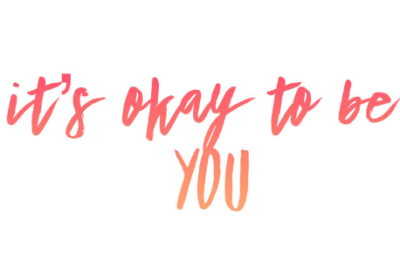We’ve all found ourselves stuck in a rut at one time or another.
Perhaps troubles at work have inhibited your creativity at some point, or a stressful situation at home has made it difficult for you to focus on your professional or personal goals.
Previously cherished hobbies or activities may have lost their appeal to you, and even if you think about pursuing something new it may be difficult to find the incentive to get started.
Although being stuck in a rut isn’t a quantifiable medical disorder, there are a few chronic mental health disorders that present the same symptoms.
Dysthymia is a condition characterized by a lack of energy, loss of interest in previously enjoyable activities, persistent low mood, and an overall loss of pleasure (termed anhedonia).
Chronic exhaustion, chronic stress, and chronic anxiety can also manifest symptoms in the form of lethargy, general lack of motivation, and consistently poor mood. (Source)
If any of these ailments remain untreated for too long, they could begin to have a severe effect on your life, as well as to the lives of the people around you. Therefore, finding ways to combat these emotions may be in your best interest. For example, cannabis, which you can find in the form of CBD oil UK products, is becoming a popular choice for sufferers, as well as finding other treatment paths that you can discuss with your medical practitioner if your symptoms begin to worsen over time.
A study monitoring subjects suffering from mild to severe mental disorders recommended that optimal treatment (regardless of disorder type) should include a focus on both physical and lifestyle health practices. Things like improving their diet, or taking health supplements such as Kratom (you can find kratom for sale here), or whether just physical exercise could be the best approach.
Programs that focused on improving patients’ overall health behaviors (i.e. diet, exercise, incorporating positive self-care habits into daily routine) have proven successful, with patients reporting improved quality of life over time. (Source)
Motivating Yourself To Exercise And Improve Health
There are a multitude of studies, clinical trials and reports detailing the many ways physical activity can benefit our health – physically, physiologically and psychologically.
Exercise can also be used as a treatment for chronic physical and psychological diseases such as diabetes, high blood pressure, obesity, and depression. (Source)
Other studies have established that mental health and physical health are deeply interlinked to one another. If the quality of one improves, the other is likely to benefit. (Source)
Adhering to an exercise routine isn’t always easy, especially if you find yourself caught in a slump: an estimated 50 percent of individuals who begin exercising end up stopping after a period of three to six months.
In a study monitoring the effects of empowering exercise motivation on college-aged women, all subjects were instructed to follow a workout program for a period of six months. Each agreed to attempt to exercise three days a week for 35 minutes per day.
Half of the women participated in an empowerment program alongside the workout program, the other half did not. The empowerment program involved each participant measuring her own progress and goals, identifying her ideal outcome and potential obstacles, scheduling workouts, and rewarding herself for progress made.
At the end of the study, 67 percent of the women who were in the empowerment program successfully adhered to their exercise routines compared to 26 percent in the group of women who were not following the empowerment program. (Source)
Another study revealed that when participants developed independent self-regulation and self-motivational techniques to plan and adhere to their exercise routines, confront and consider potential obstacles (such as a busy schedule), and set realistic expectations they had a better long-term success rate of adhering to their goals. (Source)
How To Start Practicing Positive Lifestyle Habits To Get Back On Track
Physical fitness isn’t the only thing you can begin working on to get yourself back on a path to good health and optimal well-being.
A positive attitude can make a big difference in your mental and even physical health over time. With practice and patience, you can condition yourself to think optimistically rather than pessimistically.
A study that monitored the effects of positive thinking conditioning on subjects suffering from Generalized Anxiety Disorder (GAD) revealed that practicing positive thinking over time resulted in improved mood, reduced anxiety and fewer intrusive thoughts. (Source)
Motivation is intrinsic in the sense that every individual’s reasons for wanting to accomplish something will differ. Identify your motivations for getting back on track – i.e. increased energy, improved mood, or better physical fitness.
It is important to set realistic goals and expectations so as not to over-tax yourself – individuals who expect dramatic transformations in a short period of time may inevitably find themselves disappointed and losing motivation. A fitness tracker, like a Fitbit, is perfect for helping you set and monitor realistic goals. Check some reviews of the new Fitbit model on Mobile Mob if you are interested and think this could help you.
Begin identifying negative, unhelpful thoughts or concepts you may have – for example, “I’ll never accomplish this” – and begin conditioning yourself to think positively instead.
This can be as simple or complex a process as you need it to be! Keep a journal of things you are grateful for, list and schedule, exercise routines, classes, or hobbies you would like to pursue.
Some people also find that natural methods of boosting their mood such as using cannabis can help make managing their mental health easier. A good friend of mine who lives in a state where marijuana has been legalized even grows her own supply using seeds from a thin mint girl scout cookies strain.
Ultimately, finding methods to combat your anxiety is always going to be a personal journey, so if you are contemplating trying something new make sure to do your research first.
Above all, believe in yourself and your capability to get back on track – stay patient and persevere!
Written by:
Helen Sanders is chief editor at HealthAmbition.com. Established in 2012, Health Ambition has grown rapidly in recent years. Our goal is to provide easy-to-understand health and nutrition advice that makes a real impact. We pride ourselves on making sure our actionable advice can be followed by regular people with busy lives.






